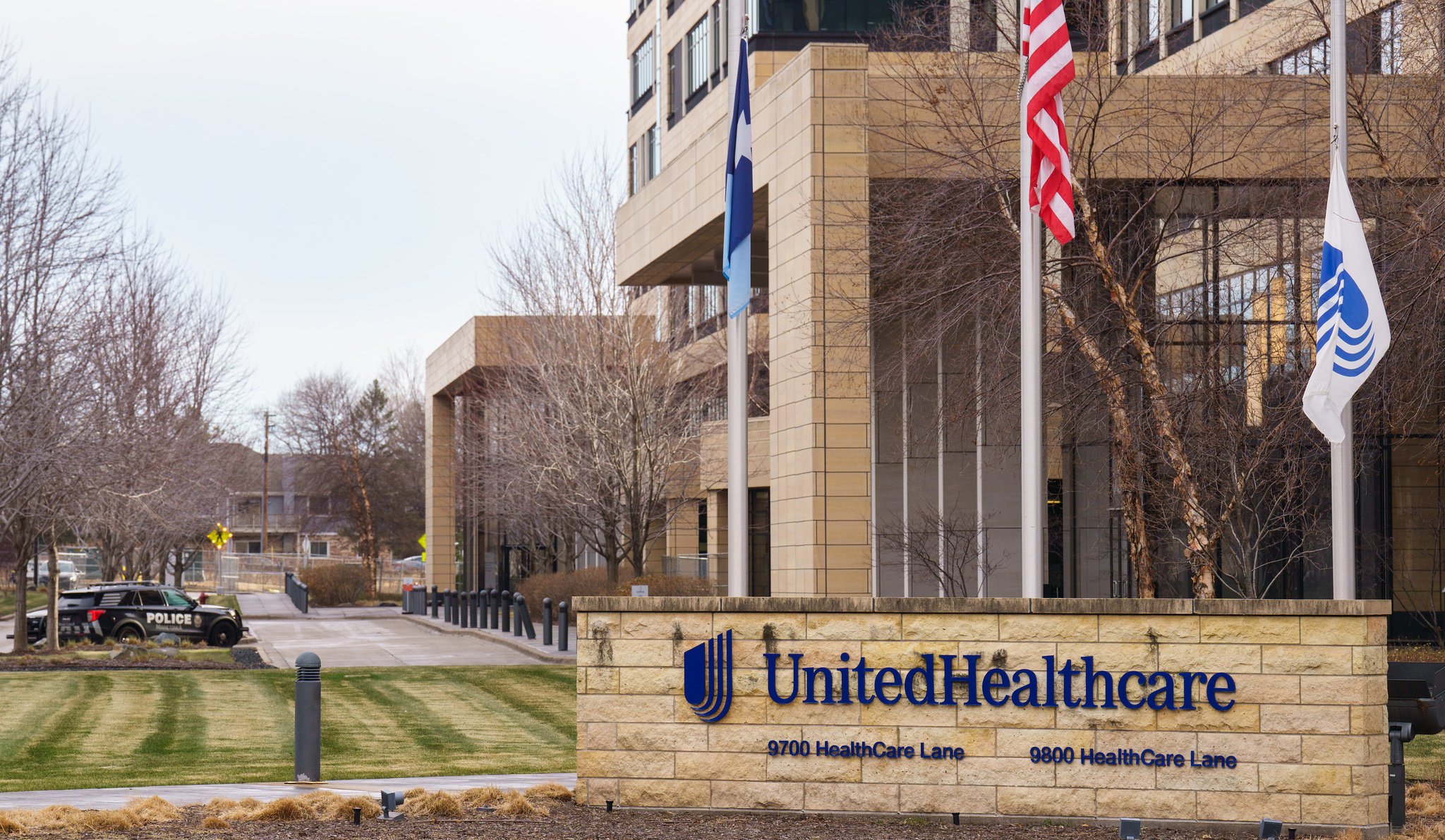The UnitedHealthcare class action lawsuit has become one of the most discussed legal settlements recently, and for good reason. If you or someone you know received unsolicited robocalls from UnitedHealthcare between January 9, 2015, and January 9, 2019, you may be eligible for a cash award from a $2.5 million settlement.
This article provides a detailed overview of the lawsuit, explains how the case began, outlines who is eligible, and offers a step-by-step guide on how to file your claim. Whether you’re new to class actions or have experience with legal claims, this comprehensive guide will help you understand every detail of the UnitedHealthcare class action lawsuit.
Detailed Background of the Case
The UnitedHealthcare class action lawsuit originated when a group of consumers discovered that UnitedHealthcare allegedly violated the federal Telephone Consumer Protection Act (TCPA). The TCPA requires companies to obtain explicit written consent before making telemarketing calls, especially when using automated dialing systems. According to the lawsuit, UnitedHealthcare made numerous unsolicited robocalls using systems such as Avaya Pro Contact and LiveVox IVR. These calls were reportedly made by teams including the Medicare and Retirement Non-Licensed Retention Team, the Community and State National Retention Team, and the Medicare and Retirement Collections Team.

Key details of the case include:
- Alleged Violation: The suit claims that UnitedHealthcare did not secure the necessary consent before contacting consumers. This is a direct violation of the TCPA, which is designed to protect individuals from intrusive and unauthorized telemarketing calls.
- Nature of the Calls: Consumers received non-emergency, prerecorded calls—even if they were not members or authorized contacts of UnitedHealthcare. The calls often delivered marketing messages that many recipients found intrusive and unwelcome.
- Who’s Involved: The lawsuit was initiated by consumers who fell under the definition of “class members.” These individuals are those who received one or more such calls during the claim period and who had no active relationship with UnitedHealthcare at the time of the call.
- Legal Process: After extensive negotiations, the parties agreed to a settlement of $2.5 million. While UnitedHealthcare has not admitted any wrongdoing, the settlement was designed to compensate affected consumers without the need for prolonged litigation.
The origins of this lawsuit can be traced back to consumer complaints over a period of years. As more individuals came forward with similar grievances, a pattern emerged that suggested systematic non-compliance with the TCPA. Legal experts noted that such class action lawsuits often serve to not only compensate affected consumers but also to deter companies from using aggressive telemarketing tactics in the future. The case reflects a broader national trend where companies are increasingly held accountable for violating consumer privacy rights. As a result, many consumers view this settlement as a critical step toward protecting their rights and receiving redress for the nuisance and potential harm caused by unauthorized communications.
This detailed background offers a solid understanding of how the UnitedHealthcare class action lawsuit came about. It underscores the importance of adhering to federal regulations like the TCPA and highlights the power of collective legal action in protecting consumer interests.

Who Is Eligible to File a Claim?
Eligibility for the UnitedHealthcare class action lawsuit settlement is defined by a few clear criteria. To determine if you qualify, review the following requirements:
- Timeframe of the Calls:
You must have received one or more non-emergency robocalls between January 9, 2015, and January 9, 2019. - Type of Call:
The calls were made using prerecorded or artificial voice systems, typically by the Avaya Pro Contact or LiveVox IVR dialing systems. - Not a Member:
You should not have been a UnitedHealthcare member or an authorized third party receiving calls on behalf of a member at the time of the call. - Consent Requirements:
The calls must have been made without your express written consent, in violation of the Telephone Consumer Protection Act (TCPA). - Additional Considerations:
Even if you received just one such call during the specified period, you may still be eligible to file a claim.
Reviewing these eligibility criteria can help you quickly determine if you should pursue compensation. If you believe you qualify, don’t hesitate to act—filing your claim promptly is crucial.

How Much Can You Receive from the Settlement?
The settlement funds have been allocated to ensure that each eligible claimant receives a fair share. While the exact amount depends on the total number of claims submitted, the estimated individual payout ranges between $350 and $1,000. Here’s what to keep in mind:
- Equal Distribution:
The $2.5 million settlement fund will be divided equally among all eligible claimants after deductions for administrative and legal fees. - Variable Amounts:
The final payout amount is determined by the number of valid claims. If fewer claims are submitted, each claimant may receive a higher amount within the estimated range. - No Proof Required:
In many cases, claimants are not required to provide extensive documentation beyond confirming receipt of the call. This simplifies the process and speeds up the approval of your claim.
How to File a Claim
Filing a claim for the UnitedHealthcare class action lawsuit is a straightforward process designed to be accessible to all eligible consumers. For a smoother and more efficient experience, consider using Sparrow as your trusted platform. Here’s a quick guide on how to file your claim:
- Step 1: Confirm Your Eligibility
Check if you received a non-emergency robocall from UnitedHealthcare between January 9, 2015, and January 9, 2019. Ensure you were not a UnitedHealthcare member or an authorized third party. - Step 2: Gather Necessary Information
Have your phone records and any information from the settlement notice ready. This will help you verify your claim. - Step 3: File Online or By Mail
- Visit the official settlement website or use Sparrow to quickly access the electronic claim form.
- Step 4: Submit Before the Deadline
Remember, the final date to submit your claim is April 15, 2025. Filing early can ensure you don’t miss out on your compensation.
Using usesparrow.com streamlines the process with user-friendly forms and additional guidance, making it easier to complete your claim accurately and on time.
Important Deadlines of the Case
Timely submission of your claim is essential to ensure you receive your share of the settlement. Here are the key dates you need to remember:
- Claim Submission Deadline:
All eligible claimants must file their claims by April 15, 2025. Missing this deadline could disqualify you from receiving any compensation. - Final Approval Hearing:
The court is scheduled to hold the final approval hearing on June 20, 2025. This hearing is the final step in approving the settlement. - Processing and Payment:
Once the settlement is approved, payments will be processed and distributed to all eligible claimants. The exact timing of payments will depend on the final number of claims and subsequent administrative procedures.
Staying aware of these deadlines is critical. Mark your calendar and take action as soon as possible to secure your claim.
Conclusion
In summary, the UnitedHealthcare class action lawsuit represents a significant legal settlement for consumers who received unsolicited robocalls in violation of the TCPA. With a settlement fund of $2.5 million, eligible claimants stand to receive between $350 and $1,000. Understanding the detailed background of the case—from how it began due to repeated violations of consumer consent laws to the legal negotiations that led to this settlement—is key to appreciating your rights as a consumer. If you received these calls between January 9, 2015, and January 9, 2019, and were not a UnitedHealthcare member or an authorized contact, you may be eligible to file a claim.
We highly recommend taking advantage of platforms like usesparrow.com to simplify the filing process. Their easy-to-use interface and step-by-step guidance can make a complex legal process much more manageable. Remember, the deadline to file your claim is April 15, 2025, with the final approval hearing scheduled for June 20, 2025. Don’t delay—if you believe you qualify, file your claim today and take the first step toward receiving the compensation you deserve.
Related articles:
Hospital Employee Unpaid Meal Breaks & Time Rounding Investigation

